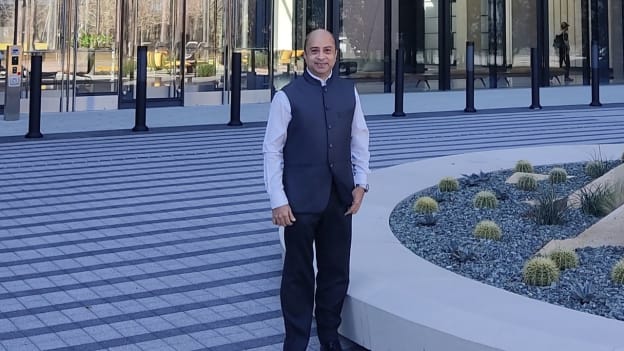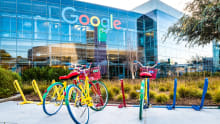Hybrid work environment is here to stay, at least for the foreseeable future: Sailesh Menezes, Hewlett Packard Enterprise, India

Sailesh Menezes is currently the India HR Leader with overall responsibility for the India Geography. Sailesh has played multiple roles in his career with HP/HPE including the HR leader for the Sales, Engineering (R&D), Services & Software organisations in the country, and has been responsible for the execution of people strategy, engagement & development, employee relations and talent management.
Prior to joining Hewlett-Packard in December 2011, Sailesh had worked in two other organisations for about 15 years both in India and the US, first at IBM (www.ibm.com) and more recently at Wipro Technologies as a General Manager where he had a global responsibility leading Talent Management and Organisation Capability Building in addition to driving HR Systems & Solutions, Processes and HR Policy formulation across the 140,000 strong organisation. He is a post graduate rank holder in business management from the Xavier Institute of Management & Entrepreneurship, India. Here are the edited excerpts:
What are the emerging HR tech trends that will dominate the future of work?
The COVID-19 pandemic has forced organisations to rethink the future of work and the workplace. Hence, HR leaders are realising the need to invest in emerging technologies in their efforts to drive an impactful people strategy and strengthen various aspects of work culture.
Some of the emerging trends which are defining the future of workplace and re-imagining the HR function in the last couple of years:
The Future is Hybrid
There was a time when remote working wasn’t even a possibility, but lately the companies have realised that the future of work is hybrid. We believe that a hybrid work environment is here to stay, at least for the foreseeable future. Hence, it has become more important for companies to invest in the latest technology tools for a seamless experience for employees. At HPE, we’re continuously investing in tools and resources that keep our team members connected and promote collaboration, team building and culture – no matter where they work.
Artificial Intelligence will become central in HR processes
Artificial intelligence as a tool helps the HR teams in automating certain processes and aids in decision making. It will continue to evolve and be deployed by companies beyond its more common uses in recruiting, learning and employee sentiment analysis to streamline and optimise certain operations.
More focus on Learning and Development
The workplace is evolving and so are its requirements, hence there is a strong need to upskill and reskill the employees for the seamless execution of the organisation’s plans and policies based on market and industry trends. It’s one of the most crucial investments that an organisation can make as a part of its talent management strategies. Training, development and career discussions make employees feel valued and help them to carve their potential career path within the organisation.
In addition, companies will continue to rely on the virtual sourcing, interviewing and on-boarding tools they were forced to turn to during the pandemic.
The bottom line is that these HR tech trends are going to be a game changer for the industry and create more satisfying experiences and growth opportunities for the workforce.
As organisations embrace hybrid working models, how can leadership strengthen work culture among a distributed workforce?
Culture defines an organisation and is becoming the biggest differentiator in the war for talent. Thus, it becomes very important for leaders to take necessary actions to foster and build a culture of trust, purpose, growth and flexibility in the current hybrid working model. These are some key priorities for leaders to focus on:
Maintain healthier relationships amongst the workforce
The greatest asset for an organisation is its employees. When employees feel trusted, they do their best work. Additionally, hybrid work fosters a sense of trust among leaders and their teams as leaders allow employees the flexibility to work remotely just as productively as they work in the office. Consequently, employees and leaders thrive together.
Foster a purpose driven organisation
When employees are aligned to a larger organisational purpose and objective, they are more engaged and productive and feel that they are making a difference. The leaders should encourage their employees to step out of their comfort zone and explore how their purpose can be met at work. This leads to improving the happiness index, fulfilment, and mental wellbeing of the employees.
Enhance employees’ work-life balance
In a hybrid work model, attention to your employee’s work-life balance can reinforce your organisational culture of caring. Hence, it’s important for the leader to establish and clearly communicate the company’s policies around work-life balance to employees, and furthermore adhere to these policies. This can have a transformative impact on the employees’ morale and help them to be more productive at work.
Focus on employees’ health and mental wellbeing
In addition to paying attention to employees’ work-life balance, leaders should also do more to promote the positive mental health of their remote workers. In the remote work environment, employees are more likely to experience mental health issues. Leaders can help combat these mental health issues by reinforcing a culture of caring, empathy, consideration, and gratitude. Also offering periodic mental health resilience training & employee assistance programs can go a long way.
Overall, I strongly believe that leaders have a critical role to play in creating an environment where employees can stay connected while working from home.
They should also focus on giving company culture the strategic attention it deserves.
How can leaders build a more robust and sustainable DEI agenda?
In recent years, many organisations have consciously made an effort to enhance workforce diversity, foster inclusive workplace cultures, and address systemic barriers to employment equity.
To power innovation and creativity, organisations are working towards supporting the long-term development and well-being of their team members, and providing a safe and secure work environment. Fostering a diverse and inclusive workplace requires the deliberate cultivation of inclusive behaviors and allyship. The companies are making conscious efforts to revamp diversity and inclusion strategies, not only for underrepresented groups but also for the newly created segment of workforce - the remote employees.
Also, it’s important to have a strong anti-harassment and non-discriminatory culture, supported by mandatory annual trainings, robust policies, and reporting mechanisms for any issues that arise in the workplace. Beyond these foundational efforts, the leaders should take active steps to listen to their team members’ input on how they can continue to make the workplace culture more diverse, equitable, and inclusive.
At HPE, we are committed to advancing the principles of diversity, equity, and inclusion within and beyond our walls. With a shared sense of belonging, our leadership and team members bring differing perspectives, ideas, and experiences to their work, fueling innovation and driving transformational change across the IT industry.
How has employee well-being evolved for HPE in the past two years? How do you view leveraging technology to boost wellness when the workforce demands a digital detox?
As remote working became a new normal, it led to digital fatigue amongst the workforce. Many organisations have introduced initiatives such as microbreaks and ergonomic breaks to combat digital fatigue.
That said, I believe that the potential for technology coupled with employee wellness solutions is endless. At HPE, we have been taking an innovative approach to the health and well-being of our team members and their families by leveraging technology. We support the health of our team members through Winning with Wellness, our longstanding well-being initiative. This program incorporates in-person and virtual resources like on-site training, wellness websites, a publicly available podcast series, a physical fitness challenge, and tailored programs to meet local needs.
We also provide access to team members with applications like Headspace focused on short meditations, Wellbeats to provide short workout sessions, and Virgin Pulse which monitors and rewards employees for steps taken through walking and jogging.
In 2021, we expanded the health benefits we offer to our team members, including preventative healthcare for women; made telehealth more widely available across all our centers; and offered new benefits like coverage for gender reassignment. We also continue to offer our Employee Assistance Program (EAP), which provides everyday support like counseling, referrals for childcare, professional assistance for emotional and behavioral health, financial coaching, career transition support after termination, and critical incident support for sites affected by natural disasters.
In the coming days, I believe that we will see more and more employers emphasising wellness in their workplaces by leveraging technology.










